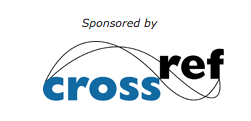Control Your Vocabulary: Real-World Applications of Semantic Technology
About the Webinar

Semantic technologies are slowly opening up a new frontiers in discovery and interaction with content. By tying together related terms, concepts, and data in meaningful ways, we can move beyond keyword searching as the primary means of content discovery in our community. Suppliers of information--both publishers and libraries--need to be aware of this changing landscape and the work that is propelling it forward. This webinar will begin with an overview of the semantic landscape and will then highlight real-world applications and uses of semantic technology, first from the perspective of a researcher trying to address specific scientific problems by using semantic technologies, followed by a publisher that has implemented semantic discovery and interaction tools for their content.
Event Sessions
Welcome & System Overview
Speaker
Introduction
Speaker
Keynote Presentation: An Overview of the Semantic Landscape
Speaker
VIVO: Enabling National Networking of Scientists
Speakers
VIVO is an open-source semantic web application originally developed by the Cornell University Library that enables the discovery of research and scholarship across disciplines at an institution. In September 2009, the NIH's National Center for Research Resources awarded a grant to the University of Florida, Cornell University, Indiana University Bloomington, and four implementation partners to use VIVO to create a national network for discovering scientists and visualizing relationships among them. This network will allow researchers to discover potential collaborators with specific expertise based on authoritative information on projects, grants, publications, affiliations, and research interests. In this talk we will give a brief overview of the technical underpinnings of VIVO; describe how it integrates with the larger semantic web; sketch out the plans for enabling discovery across the national network of VIVO sites; and explore the role of libraries in implementing VIVO at all the partner sites.
Applying Smart Content: A Case Study Approach
Speaker
In her presentation, Helen walks through how Elsevier uniquely applies smart content to make one journal, The Lancet Oncology, relevant and accessible for four distinct user groups using four separate online resources.
Q&A
Additional Information
- Registration closes at 12:00 pm Eastern on June 9, 2010. Cancellations made by June 3, 2010 will receive a refund, less a $20 cancellation. After that date, there are no refunds.
- Registrants will receive detailed instructions about accessing the webinar via e-mail the Monday prior to the event. (Anyone registering between Monday and the close of registration will receive the message shortly after the registration is received, within normal business hours.) We ask that registrants please turn off any spam blockers or filters to ensure that the information is received. Registrants unable to access e-mail during that time (out of office, etc.) should contact the NISO office to designate an alternate contact. Any registrant who has not received login instructions by 10:00 am Eastern on June 9th should contact the NISO office at nisohq@niso.org or call 301-654-2512.
- Registration is per site (access for one computer) and includes access to the online recorded archive of the webinar. If you are registering someone else from your organization, either use that person's e-mail address when registering or contact the NISO office to provide alternate contact information.
- Webinar presentation slides and Q&A will be posted to the site following the live webinar.
- Registrants will receive access information to the archived webinar following the event. An e-mail message containing archive access instructions will be sent within 48 hours of the event.
Event Dates
–
Registration
Registration closes on
To register: If paying by credit card, register online.
/sites/default/files/events/2019-01/vocabulary_jun10_regform.pdfFees
Registration Costs
- NISO Member
- $89.00 (US and Canada)
- $104.00 (International)
- NASIG Member
- $89.00
- Non-Member
- $109.00 (US and Canada)
- $134.00 (International)
- Student
- $49.00
Location
- NISO has developed a quick tutorial, How to Participate in a NISO Web Event. Please view the recording, which is an overview of the web conferencing system and will help to answer the most commonly asked questions regarding participating in an online Webex event.
- You will need a computer for the presentation and Q&A.
- Audio is available through the computer (broadcast) and by telephone. We recommend you have a set-up for telephone audio as back-up even if you plan to use the broadcast audio as the voice over Internet isn't always 100% reliable.
- Please check your system in advance to make sure it meets the Cisco WebEx requirements. It is your responsibility to ensure that your system is properly set up before each webinar begins.